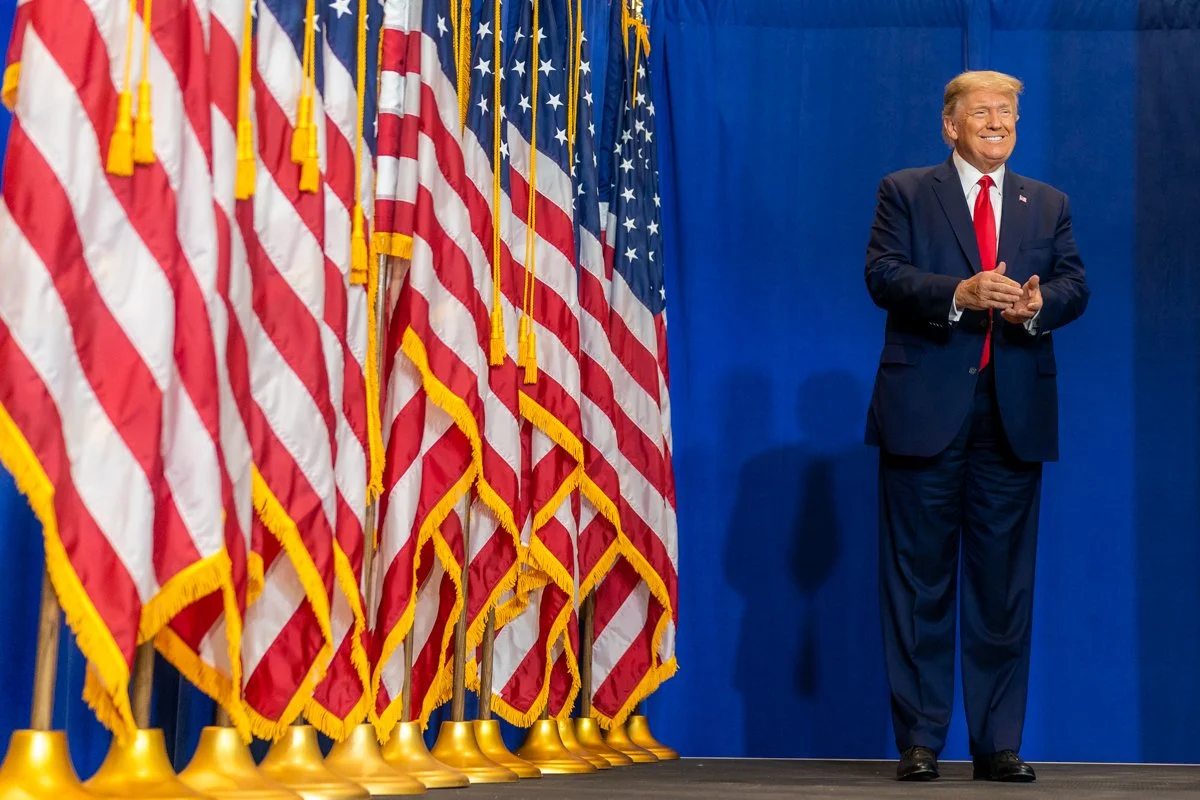Donald Trump Wins 2024 Election, Secures Second Term
President Donald J. Trump delivers remarks on Protecting America’s Seniors Friday, October 16, 2020, at the Caloosa Sound Convention Center & Amphitheater in Fort Myers, Florida (Official Archived White House Photo by Shealah Craighead).
Trump’s unusual second non-consecutive term victory marks the first since the 19th century. This return to the White House showcases the strong populist values still present in Americans and their desire to repeal the legislation of the Biden administration. He pledges to restore “America First” policies that could repeal protections in and outside of the United States. Many worry this will result in hostilities with foreign nations and the adoption of isolationist tendencies. This decision marks the beginning of what could become a contentious first term and possibly presidency.
Article by Victoria Newsome, Senior Election Correspondent
WEST PALM BEACH, Fla. - In an historic victory, Donald Trump has been elected for a second non-consecutive term as president of the United States, a feat not seen since Grover Cleveland’s presidency in the 19th century. Trump’s return to the White House is a defining moment for the Republican Party and his loyal base, which propelled him to victory on the back of promises to restore “America First” policies, prioritize national security, and tackle economic reforms with a renewed focus on domestic production and energy independence.
Trump’s victory underscores the resilience of his populist appeal, resonating especially with voters disillusioned by the perceived failures of the Biden administration in addressing inflation, crime, and immigration. Trump capitalized on this sentiment throughout his campaign, pledging to undo Biden-era policies and restore what he described as traditional American values. The 2024 election results suggest that many Americans remain aligned with Trump’s vision, signaling a continuing divide in the country between those seeking a conservative return to order and those favoring progressive reform.
Domestically, Trump’s administration is likely to make sweeping policy changes. Analysts anticipate that one of his first moves will be to repeal executive orders related to climate regulation and environmental standards, focusing instead on fossil fuel production to achieve energy independence. Trump has also vowed to push forward with stricter immigration policies, including enhanced border security measures, and to prioritize economic growth by implementing tax cuts aimed at middle-income Americans and small businesses.
Internationally, Trump’s presidency will likely be marked by a more isolationist position, with a focus on reducing America’s involvement in global conflicts and shifting trade relations in favor of U.S. manufacturing. Trump has indicated that he may reconsider U.S. commitments to international climate agreements, and could potentially renegotiate trade deals to further protect American industries. His “America First” doctrine has previously caused friction with allies, and experts anticipate a similar dynamic if he reintroduces these policies.
The election result has triggered celebrations among Trump’s supporters, who see his win as a victory against the “establishment” and a mandate to restore conservative principles. However, his critics, including progressives and moderate Republicans, worry about the implications of his return to power. Many fear that his presidency could further polarize the nation, especially as he continues to challenge the mainstream media and established institutions.
For Trump’s supporters, his win is validation of his unorthodox approach and a signal that populist values remain strong in American politics. However, his renewed presidency could face challenges, particularly as he navigates a divided Congress and opposition from within the Republican Party. Trump’s victory signals the beginning of a turbulent chapter in U.S. politics, with both supporters and those in opposition preparing for what may be a contentious term focused on reversing key policies from the previous administration.
Assistant chief White House producer Grace Sawyer contributed reporting to this article.
